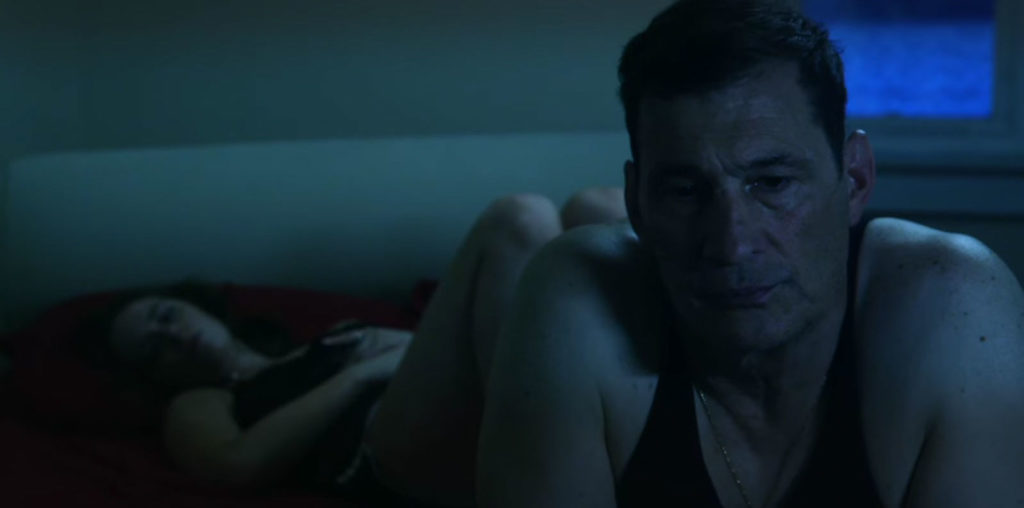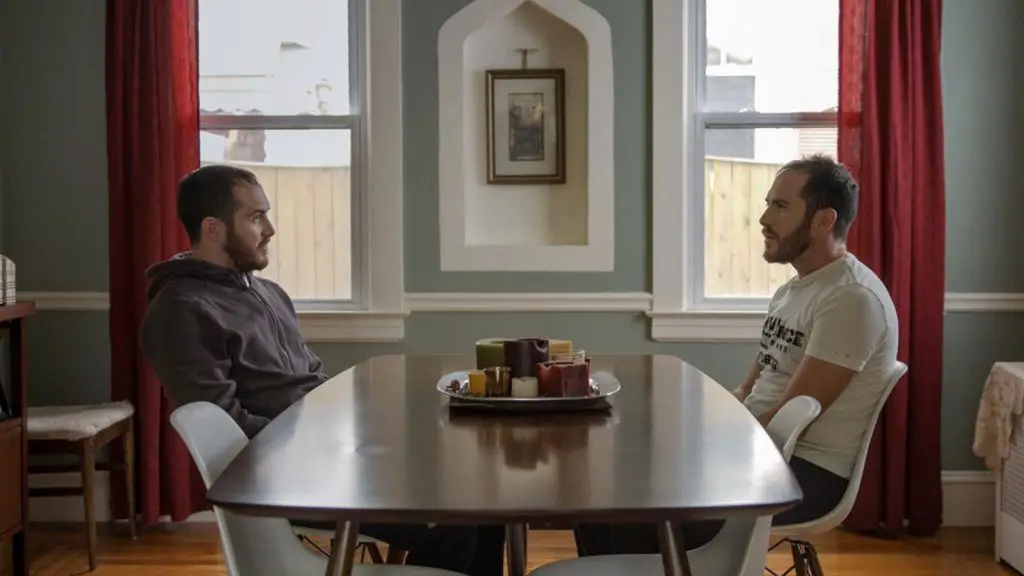
“Transamerica,” director-writer Duncan Tucker’s first feature, and, I believe, the first pick-up by Bob and Harvey Weinstein’s new, eponymous The Weinstein Company (following their split from Disney/Miramax), is one of those small, low-budget gems of self-discovery that will earn a lot of award buzz this holiday season. Tucker has a lot to be jolly about. With very little moviemaking experience, he coaxed one of the year’s best performances out of Felicity Huffman, best known as one of those Sunday night “Desperate Housewives,” but also having earned attention as the female lead on the Aaron Sorkin series “Sports Night.” She enchantingly embodies the role of a person suffering gender dysphoria, and is in the final phases of shifting her sexual category (physically), yet having a harder time changing from man to woman (emotionally). The awkward makeup makes this clumsy-funny illusion all that more real, when you realize the actress is portraying a man born Stanley who has already changed into pretty-in-pink dresses, painted his nails to match, had electrolysis, has altered his body’s hormonal balance, pitched his voice up an octave, and generally made as much progress toward his metamorphosis into Sabrina “Bree” Claire Osborne, while awaiting the final reassignment surgery. Imagine Martin Short in drag crossed with Dana Carvey as the church lady.
And it is at that cusp in Bree’s difficult life that the film begins. This smart, well-mannered, conservative, Los Angeles telemarketing salesperson has a biological wrench thrown in her already confused stew. A phone call from a Manhattan detention center nearly drains the blood from her face. She suddenly learns she has fathered a now 17-year-old son, the offspring of a college romance barely remembered. He’s motherless. He’s a juvenile delinquent. He has awful manners. He wants to be an actor…in x-rated videos. And he’s soon to be her problem. The shaken Bree is told by her transgender supervisor Margaret (Elizabeth Peña) that she must come to terms with her son before her final sashay into womanhood. With her operation only weeks away, she becomes anxiously overwhelmed with the prospect of revealing that she is the boy’s parent. Her emotional baggage is about to grow from carry-on to cargo fleet with a whimsical charade that hides both her tender transgender condition and her fatherhood from her brooding son Toby (Kevin Zegers). Bailing him out of jail, she pretends to be a Christian missionary (“I’m from the Church of the Potential Father”) intent on saving the boy from damnation. Good luck!
Hitting the highways in an old split-pea-green wagon, the unlikely pair get off to a bad start. Stopping in Kentucky, Bree wants to offload Toby at his stepfather’s, but stepdad’s love was of a more deviant nature. Oops. Stops in Dallas (at a proud, transgender support group) worries Bree that she might be outed, but her secret (or part of it) can stay hidden only so much longer anyway. A vegan, pot-smoker hitchhiker (Grant Monohon) causes them considerable delay in their travels, and with funds running low, they discover the kindest of strangers in rancher Calvin (Graham Greene), who puts on his best armor in Bree’s defense. Of course, it’s well past Kansas (Phoenix, actually) that Bree finds there’s no place like the ancestral home (director Tucker’s mother’s actual home), where the prodigal son/daughter returns to some soul-wrenching fireworks. Broadly drawn mother Elizabeth (Fionnula Flanagan, modeled after Tucker’s mom), let-me-be dad Murray (Burt Young), and younger, 18-months-sober sister Sydney (Carrie Preston) all feed Bree’s self-doubt, particularly after learning Toby is a member of their family. Bree begs them to keep the fact the she is the boy’s parent from him, which makes for a dinner out on the town a hellish affair. Sydney, ashamed that her family has so disrupted the restaurant’s other patrons, apologizes, “We all look much happier than we really are.”
It’s more than luck that carries the film as it steers it comic-yet-soulful way across country. It’s Tucker’s determined ability to imbue the marvelous cast with the humanism he has written down on paper, and for the actors to get their performances just right. All earn high marks in translating Tucker’s vision into a road trip populated by affectionate, sympathetic characters. This unlikely director-writer has managed to show us something many of his Hollywood peers can’t—how truth hurts, and that once confronted it ultimately builds a better sense of self-dignity. “Transamerica” is a modern-day Sullivan’s Travels, a journey of cosmic self-discovery for Bree and Toby and the lives they touch. “Transamerica” gives us hope in ourselves—that if we confront our own problems, we can become better human beings.

